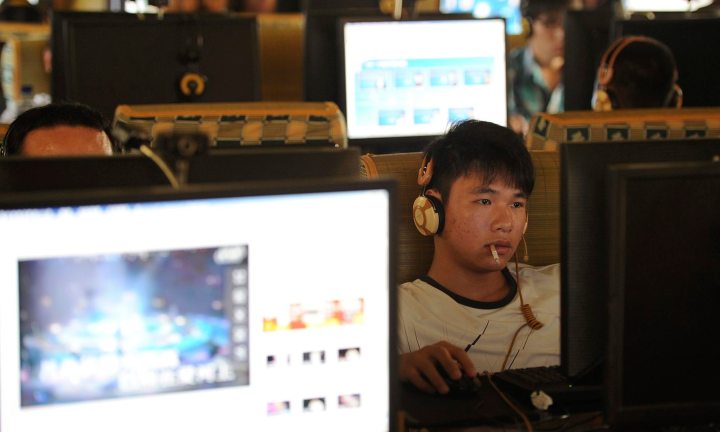World
The government’s guide to using the Internet in China (hint: with caution)

Already a censor’s paradise, new regulations are making the Internet in China even more fraught for users who risk being slapped with a three-year prison term if they say the wrong thing online. SIMON ALLISON ducks behind the Great Firewall to explain the changes.
I make the same mistake every time I visit China. Settling into a comfy armchair in a cosy coffee shop, I connect to the free Wi-Fi and begin my regular Internet routine, which starts and ends, obviously, with the Daily Maverick, but encompasses all the usual suspects too: social media, the big newspaper sites, a few blogs I follow religiously.
The problem? The Internet doesn’t seem to be functioning properly. The New York Times won’t load, Twitter has frozen and the blogosphere seems to have died completely. After impatiently pressing the refresh button several times, and just as I’m about to summon the waiter for a difficult technical discussion in awkward sign language, I remember: I’m stuck behind the Great Firewall. The Internet works differently here.
By order of the Chinese government, some of the world’s largest and most influential online presences are deemed too subversive for the good citizens of the People’s Republic. Included in this list are: Facebook, Twitter, YouTube, the New York Times, Bloomberg, Picasa, Dropbox, Blogspot, WordPress and IMDB, all of which are banned – that is, censored – from Chinese browsers. It makes freewheeling navigation of the World Wide Web impossible, and is designed to give the Chinese government the maximum amount of control over information flow.
Of course, it doesn’t work.
Information wants to be free, and nowhere is it freer than online where government clampdowns can never keep pace with an increasingly tech-savvy population that knows its way around a proxy server. In fact, getting onto the banned sites is as easy as typing “free proxy server” into Google and following the links from there. That millions of Chinese people have Facebook accounts is an open secret. Even government officials have asked to Facebook friend me, grinning sheepishly when I point out their hypocrisy. “We have ways,” they always say.
Mindful, however, of the Internet’s potential as a hotbed of subversion and dissent, this week China announced plans to implement even more stringent controls on Internet use, this time targeting what people say and do online.
Justifying the new measures, Supreme Court spokesman Sun Jungong read a statement on national television outlining the dangers of too much free speech online. “In recent years, the Internet has been used to maliciously fabricate facts and damage the reputation of others … and to concoct rumours that mislead the people, causing serious disruptions of social order and even mass incidents,” he said. “People have been hurt and reaction in society has been strong, demanding with one voice serious punishment by the law for criminal activities like using the Internet to spread rumours and defame people. No country would consider the slander of other people as ‘freedom of speech’”.
And so, apparently giving “the people” what they want, China has unveiled new laws that make online defamation or untruths illegal and punishable by up to three years jail time. (Technically speaking, these aren’t actually new laws; rather, they are a new interpretation of existing defamation laws, which have been broadened to incorporate cyberspace as a public space.)
According to the South China Morning Post, this applies to all social media entries that are found to be a) untrue; and b) to cause mental illness, self-harm or suicide; lead to mass protests; instigate ethnic or religious clashes; damage the nation’s image; or cause a “bad international effect”, whatever that means.
Interestingly, China has quantified the amount of attention a post must receive before it is considered significant enough to matter. Under the terms of these new laws if a post is forwarded 500 times, or attracts more than 5,000 views, it’s a problem. This actually gives a fair bit of leeway for authorities to ignore one-off, angry outbursts, although it also provides a sure fire way for people to get their enemies into trouble (sharing the post implicates the author, not the sharer).
The new regulations have attracted criticism from human rights lawyers, who argue that they could be used to stifle free speech. Not an unreasonable supposition given the government’s record in this area. Speaking to the Telegraph, Chinese lawyer and prominent microblogger Yuan Yulai said he believes “this is happening because the party and government are not used to the idea of a free society [or] democracy”, while Mo Shaoping, another lawyer, argued that “if not handled properly, this might have negative effect on freedom of speech and the online fight against corruption”.
It all adds up to making using the Internet in China even more fraught and complex, with users breaking the law for online activity which most of us take for granted. Not that this has stopped them. One slogan’s already gone viral on Sina Weibo, China’s Twitter-equivalent: “If you love someone, repost him. If you hate someone, repost him too.” DM
Read more:
- China tightens grip on social media, on the Wall Street Journal
- Up to three years in prison for Chinese internet users who spread rumours, on the South China Morning Post
Photo: A man smokes as he uses a computer at an internet cafe in Hefei, Anhui province, September 15, 2011. REUTERS/Stringer



















